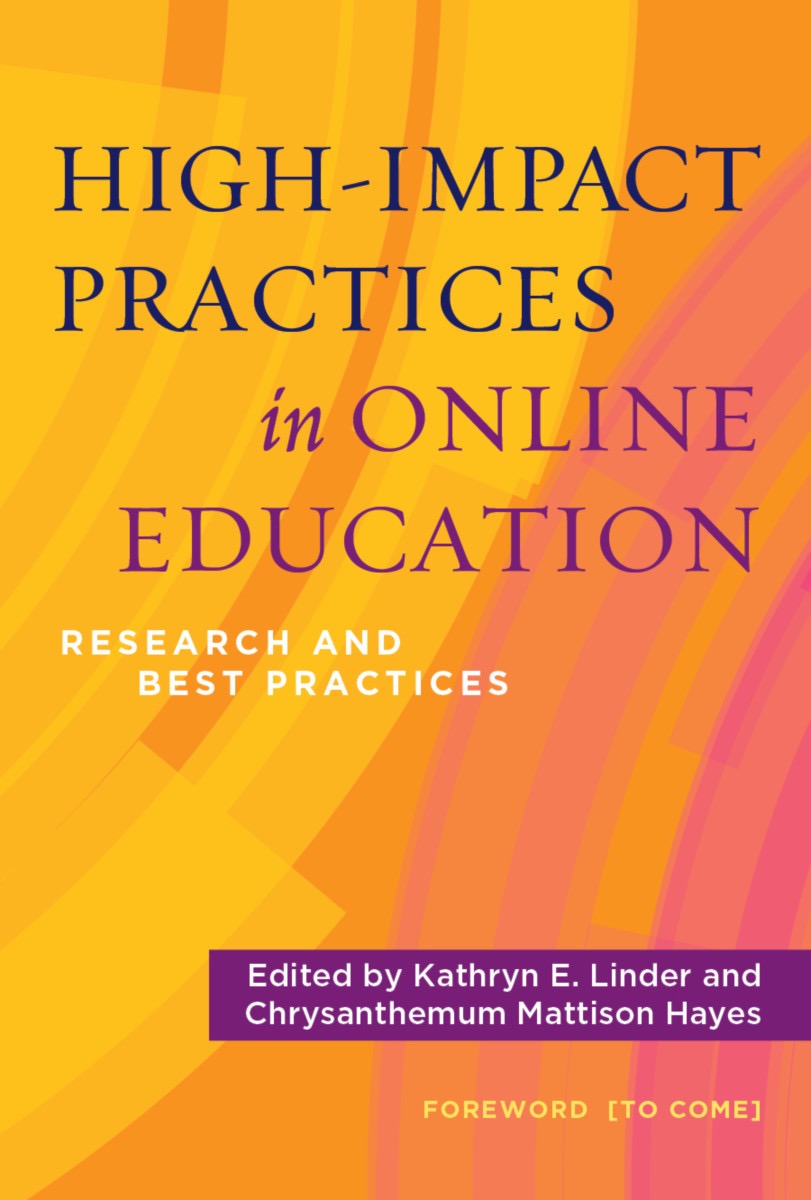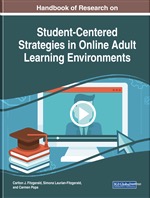online teaching
Select an item by clicking its checkbox
Discussion forums in online classrooms are unfortunately named. The name evokes just talking about stuff. This can be a good use of the discussion forum; dialogue is an important part of higher education. The opportunity to test and develop ideas in conversation with trusted colleagues, both classmates and professors—yes, ...
In the last few weeks, the undergrads I teach have responded to moving off campus and courses shifting online with a mixture of confusion and sadness. While their generation is well equipped to utilize digital resources, the sudden dismantling of our daily community and rhythms deeply challenged all of us. ...
Date Reviewed: April 15, 2020
What are the potential benefits of high-impact practices (HIPs) for online education? That is the key question addressed in this well-researched collection of essays. Whether the reader is new to innovative theory and techniques in online education or an experienced distance educator, they will find a valuable resource here. Each contributor provides a helpful short list of key takeaways and a solid bibliography at the end of their chapter. The introduction and conclusion by the editors, Linder and Hayes, set the framework for the discussion and aptly describe possible future directions for teaching online, blended, or face-to-face courses.
High-Impact Practices in Online Education reads like a dynamic conversation on research with practical recommendations for how to strengthen a variety of teaching contexts. Each topic selected for inclusion covers a specific high-impact educational practice. That list was largely identified in 2008 by George D. Kuh as ten critical components of undergraduate education. First-year seminars, learning communities (LCs), writing-intensive courses, and internships were among those featured components. These practices are still considered high-impact, but newer practices, such as ePortfolios, have been added in subsequent years. All have become part of developing educational strategies to impact student retention and graduation rates.
So, where will readers find what they most need in this collection? For some, a particular topic will draw their attention. My suggestion is to resist that impulse. Try, instead, reading the introduction and conclusion before sampling individual chapters. Understanding the context for the conversation about HIPs matters. The research and literature in this emerging field has been somewhat scattered, but a representative sample is nicely gathered and incorporated into this single volume.
There are no chapters specifically on theological education or religious studies. That said, there is much of worth to educators in those disciplines. For example, June Griffin’s “Writing-Intensive Classes” or Pamela D. Pike’s “Internships” speak directly to theological and religious educators. The same can be said about Stefanie Buck’s “High Impact Practices and Library and Information Resources.” No doubt other readers will discover other favorites as well. Remember that any one of these chapters could make a dramatic difference in most teaching and student learning.
Is there one overarching idea offered as a takeaway? Yes, and it is that best practice principles are, in the end, more important than modalities. That is a valuable point to have in mind as exciting new technologies continue to emerge.
Date Reviewed: April 15, 2020
Adult learners are different than younger learners. These groups do, however, share some interests and learning similarities; for instance, both are motivated to use technology in learning. Yet adult learners often have additional challenges using technology because of their late involvement with the digital world. Older adult learners’ participation in online learning and continuing education pose institutional, situational, and dispositional challenges.
Online learning provides particular possibilities for adult learners, thereby allowing them to cope with specific adult learning demands. It helps adult students to maintain some sustainability while navigating new technological terrains. Adult learners may have particular learning issues and challenges arise from time to time.
The Handbook of Research on Student-Centered Strategies in Online Adult Learning Environments was developed for educators who work with adult learners in online programs. It is a book primarily focused on helping teachers by offering specific ideas for working with students in online environments and serving as a guide for structuring learning experiences for people at different stages of development.
The book comprises 22 chapters organized in four sections. Section 1, “Integrating Educational Practices into Online Learning,” provides insights into how educators can link natural learning tendencies in teaching to students’ learning. Furthermore, it highlights competency-based education and the position of student-centered online learning. Section 2, “Adult Learners and Learning,” discusses andragogy in relation to the transitions in knowledge acquisition, focusing on concepts of digital natives and digital immigrants. Discourse on preparing the efficient teacher in the age of information and communication technology is foregrounded in Section 3, “Professional Learning.” For instance, Chapter 14, “A Guide to Professional Learning for Secondary Mathematics Teachers,” explores the impact of a professional learning program on mathematics teachers’ self-efficacy. Section 4, “Student-Centeredness and Collaboration,” provides an overview of collaborative learning as well as student-centered online learning.
This handbook also provides arguments on converting theoretical frameworks into practical work in an online classroom or any other digital context. The chapters are organized subsequently in a rational order, yet the reader can start with any chapter of potential interest. However, the discourse on neoliberalism, along with austerity, and their impact—on online education generally, and online adult education particularly—is absent. Furthermore, the counter-argument which debates that online learning should be accepted with much caution receives only 15 pages. Moreover, while Dan Patroc argues that insufficient non-verbal communication is a major drawback in online learning, non-verbal communication receives only one paragraph. Overall, the editors and authors provide a remarkable contribution to the literature on online adult education. Handbook of Research on Student-Centered Strategies in Online Adult Learning Environments is highly recommended for adult educators, online trainers, researchers, and policymakers.
When we engage our teaching world online, let me encourage you to start where you are. It is not about the tech, gear and gadgets. It is about vision, imagination and design. In this vlog I show you my setup, my online classroom and how I think about this space. ...




